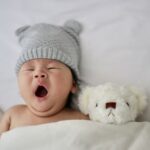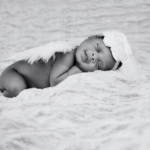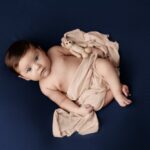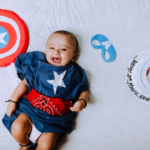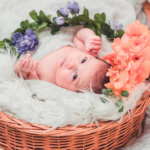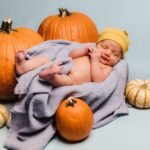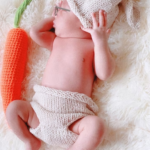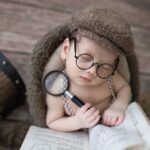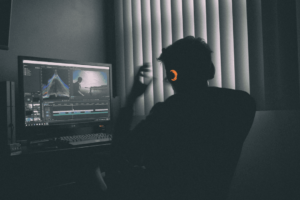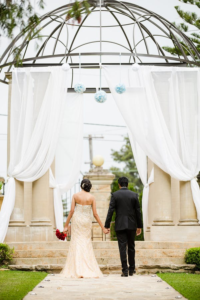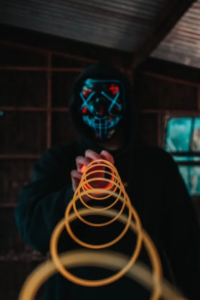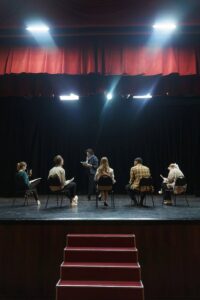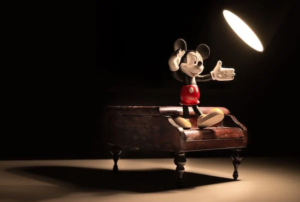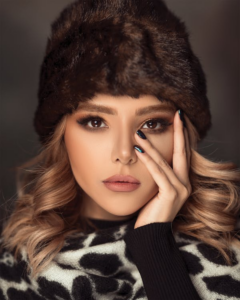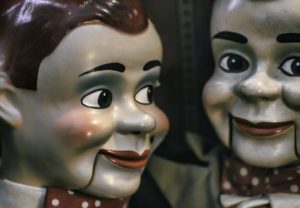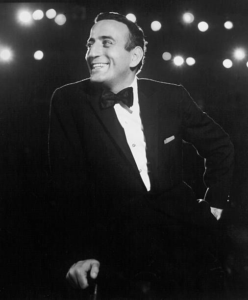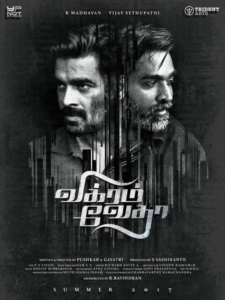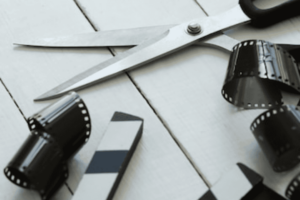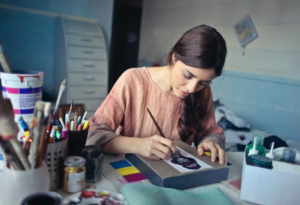Newborn photography is a branch of photography that involves capturing pictures of newborn babies. Since newborn photography is quite challenging, it usually requires a trained professional photographer who has mastery over safety lighting, wrapping, posing, and soothing newborns. Further, safety is the key priority in this type of photography as the main subject is quite delicate. However, you can also avail the help of a newborn’s parents and a few pieces of equipment to ease the process.
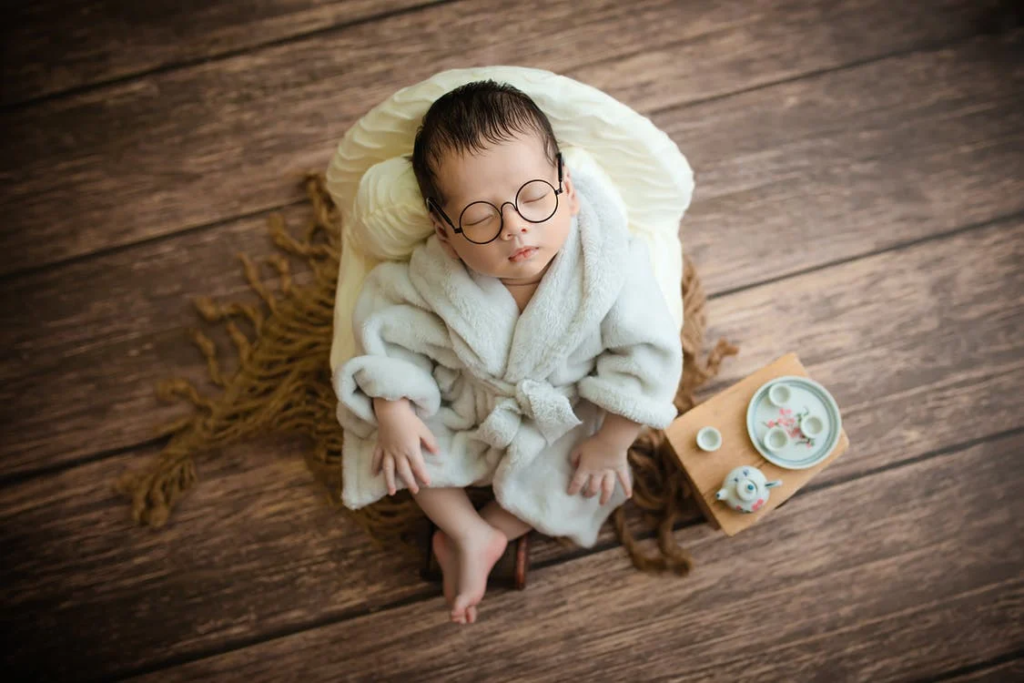
When to Take Newborn Photos?
The success of newborn photography depends on the perfect time at which it is taken. It would help if you neither took the photos sooner nor later. Hence, the ideal time to shoot them falls between days 7 and 14 after birth. They are pretty sleepy during this phase and snuggle up to give lovely poses. On the other hand, you can still opt to photoshoot your newborn post the second week of their birth. However, do remember they become aware of their surroundings during this time.
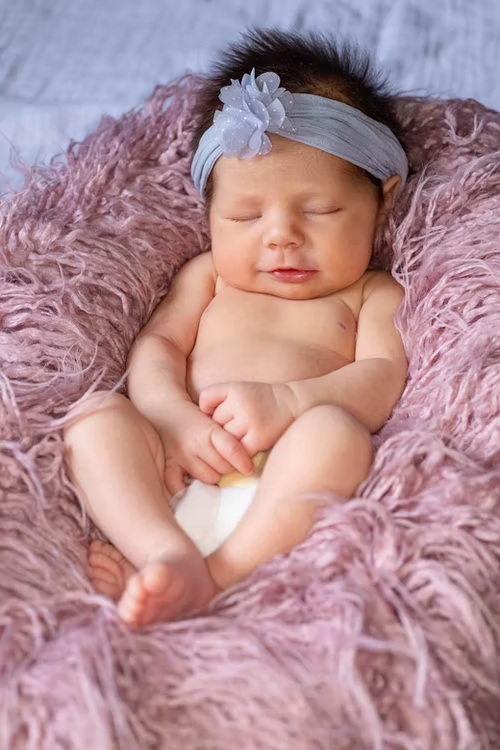
Where to Photograph the Newborn?
Newborn photography can be taken in different locations and is classified as:
On-Location Photography
When you photograph the newborn at your client’s home, it is called on-location photography. Therefore, you have to travel to the location. Additionally, you need to carry all the equipment required for the session. You must also ensure your client’s location has ample space and light.
Studio Photography
You can take newborn photography at the comfort of a studio which can be either rented or leased or may even be a home studio. In this type of photography, you don’t have to travel. Hence, all the necessary equipment, props, and lighting are already set and ready to use. Additionally, all newborn supplies required, such as diapers, baby wipes, bottle warmer, etc., are available.
Outdoor Photography
Although uncommon, this type of photography involves photographing the newborn outdoors, primarily preferred in places with warmer climates. You can use a nearby open space or a yard with filtered light for this photograph. These pictures are pretty challenging to take as newborns have to be exposed to external temperatures while they crave warmth. Additionally, factors like insects and weather conditions have to be considered.
Equipment for Newborn Photography
How to Choose a Camera for Newborn Photography?
Newborn photography doesn’t require any sophisticated, fast-performing cameras as they are generally shot in a naturally lit area. Some of the features to consider before buying a camera include:
- Since newborns are often photographed using natural window light, they require a camera with a higher ISO.
- Your camera should have excellent noise ratings.
- In circumstances with low light quality, you have to shoot at slower shutter speeds, for which stabilization in the lens or camera body is required.
- Choose a camera with a wide aperture, like an f/2.8.
- Since you will be photographing sleeping babies, you need to ensure your closing shutter doesn’t wake them up. Hence, consider buying cameras with a quiet mode feature. Alternatively, you may also play white noise to drown the shutter’s noise.
- The next factor you need to consider is your camera’s resolution. Choosing a balanced resolution is vital as the lower resolution doesn’t allow you to take prints while a higher megapixel doesn’t handle ISO well. Additionally, higher-megapixel cameras perfectly capture skin imperfections, leaving you with more post-processing work.
Best Cameras for Newborn Photography
Some of the cameras to consider buying for newborn photography include:
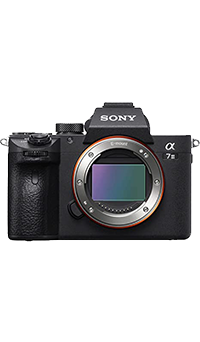
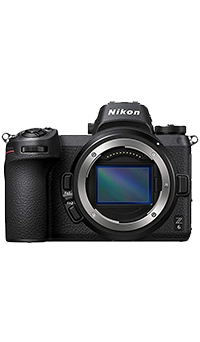
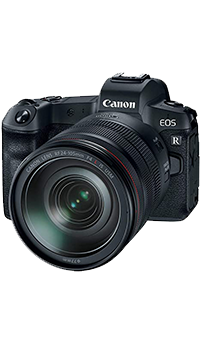
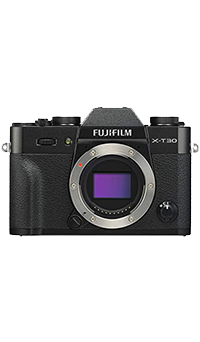
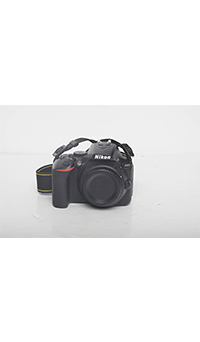
Best Lenses for Newborn Photography
- Canon EF 50mm f/1.2 L
- Canon EF 50mm f/1.4 L
- Canon EF 35mm f/1.4 L
- Sigma 50mm or 35 mm f/1.4DG Art
- Canon EF 100m 2.8L Macro
- Canon EF 24-70 f/2.8L
Camera Settings for Newborn Photography
Prepare the Room
The light available in the scene influences the camera settings for an image. Hence, newborn photography should generally be taken near a large window so that the light falls naturally on the baby’s face. Since there is no light coming from the ground, avoid placing the baby’s toes facing the window. Additionally, you can turn on all the available lights in the room to be flexible with your camera settings.
Camera Settings
Once you prepare the room, please start with the camera settings and keep them constant throughout the shoot. Below listed are the settings to consider:
- File Type: Choose a JPEG image if you want a ready-to-print picture, while a RAW image will be edited post photographing.
- White Balance: You don’t have to change the white balance setting when the lighting remains the same. However, it has to be changed when you photograph outdoors or when it is cloudy. Most infant photography works well with auto white balance in RAW mode. But you may have to match the lighting in the room if your photo turns out to be too blue or too orange.
- Autofocus Setting: While you begin your photo shoot, set the autofocus to focus the camera in your desired area. However, the single-point mode is the best autofocus setting for newborn photography as it allows you to set the focal point. Further, adjust your camera settings to focus once or continuously, depending on the baby’s activities.
| Baby’s activity | Autofocus Settings |
| Still / Sleeping Baby | AF-S or One-Shot |
| Crawling/ Moving baby | AF-C or Al-Servo focus mode |
| Active Babies | Burst mode |
Exposure Settings
Since a photograph’s exposure relies on three basic camera settings, you need to fix these to take a fantastic photo.
- Shutter speed or the length of the exposure freezes any motion in the photo
Depending on a baby’s activity, the camera’s shutter speed varies. Hence, adjust your shutter speed accordingly.
| Baby’s activity | Shutter Speed |
| Sleeping Baby | Slow |
| Still smiling and awake | Faster than a sleeping baby |
| Active baby | Faster than a still baby |
| Crawling Baby | At least 1/250 |
- Aperture, or the size of the opening in the lens: The aperture size decides the blurriness of the image’s background and foreground. You can start with the below-mentioned aperture settings and adjust the depth of field based on the image’s brightness.
| Aperture settings | Effect |
| f/2.8 and lower | Soft creamy backgrounds for baby portraits |
| f/4 | Still soft background- good for close-ups |
| f/8 | When a couple of people have to be focused |
- ISO, or the sensitivity of the camera sensor: ISO helps balance out the exposure. In general, the lowest ISO setting allows you to use a shutter speed high enough to freeze the motion. However, a higher ISO reduces the image quality and introduces noise or grain in the image.
| ISO | IMAGES |
| Lower ISO number | Creates darker images |
| higher ISO numbers | Lightens the image |
You need control when you want to change the above three exposure settings. Hence shift your camera to manual mode. In case you are a beginner, you can use the aperture priority mode, which automatically adjusts these settings for you.
Newborn Props and Accessories
In photography, props are unique tools that enhance the interest in your photo. As for newborn photography, you can use everyday objects as props or choose to add commercially available props.
Everyday Objects
- Towels: Different colors and exciting textures make infant photography stand out. Towels are a great way to introduce this variety of backgrounds and settings.
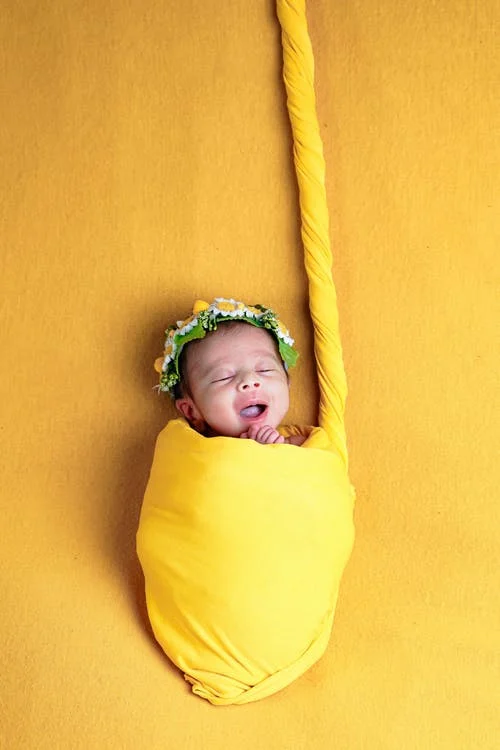
- Buckets and baskets: Ensure to transport your props in buckets or baskets as these can be excellent posing tools that can accommodate the baby. This way, you can compactly carry your stuff and use everything as props.
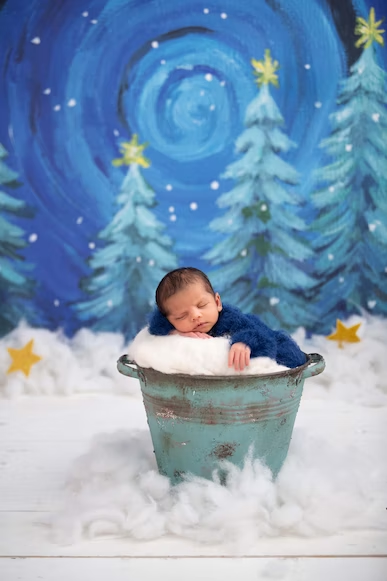
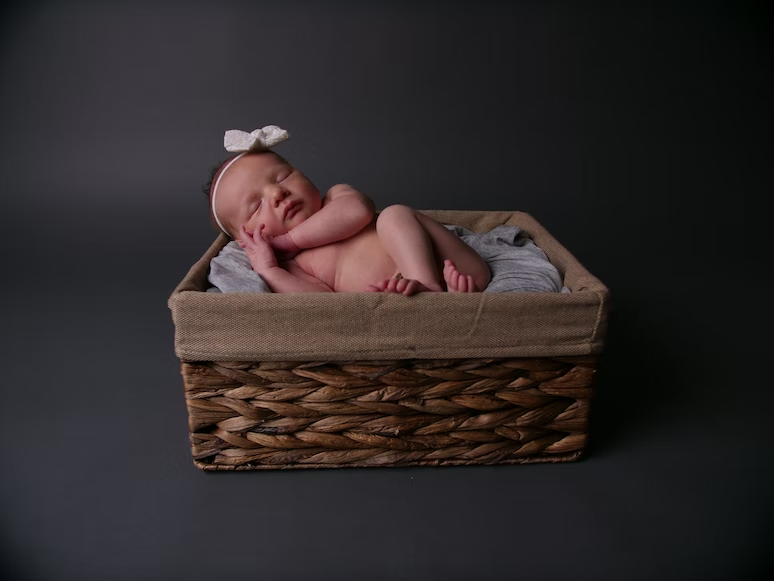
- Scarves: A cowl or infinity scarf is a great way to wrap the newborn. These customizable fabrics add a smooth look when wrapped around a basket or nest.
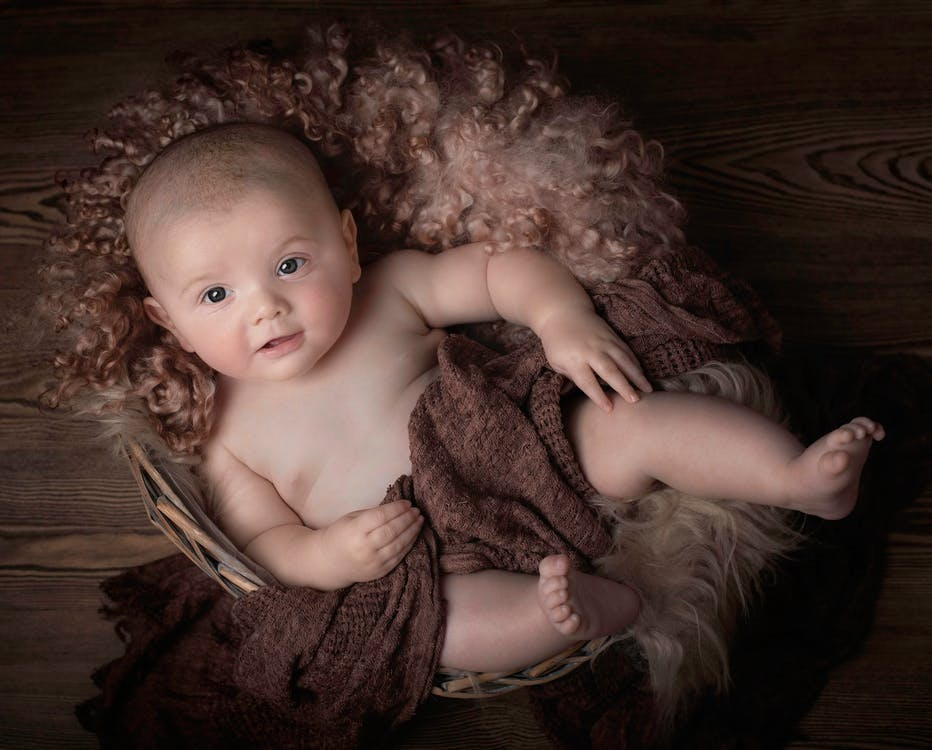
- Heating Pads: Newborns enjoy the warmth they experience. You can use this to your advantage with the help of a heating pad. A warm heating pad can be kept hidden under a blanket, and you can lay the baby over it to maintain its calmness.
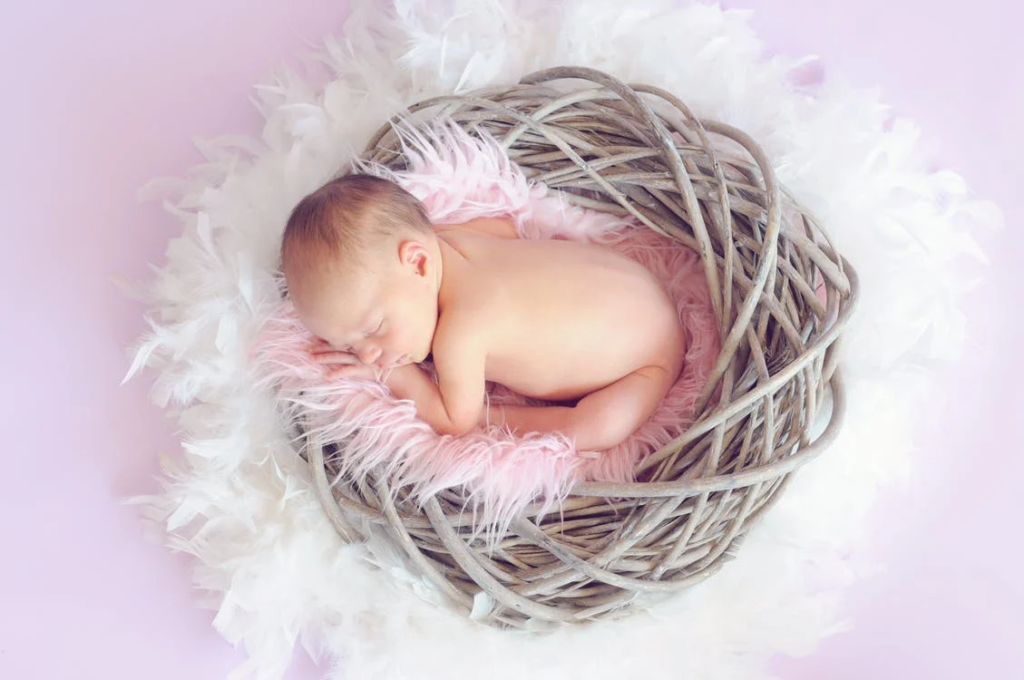
Other Accessories
Baby Burrito Wraps
Burrito wraps the babies securely with their arms locked in or left out. These wraps prevent the startle reflex and keep the babies comfortable. Additionally, they provide warmth and reduce their overall crying time. Hence, you get time to photograph their cuteness. As a newborn photographer, you have to practice the art of wrapping in different ways. Some of these include:
- Middle Twist wrap
- Full Body wrap
- Egg Wrap
- See the details wrap
- Knot Wrap
- Comfort Wrap
The image given below is an example of a full-body wrap.
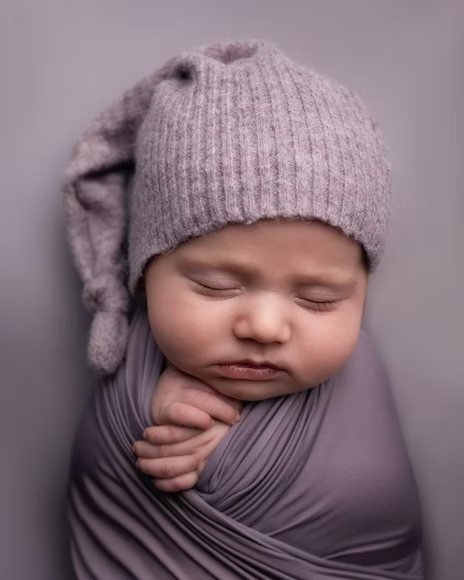
Hats and Headbands
Hats and headbands are fantastic props that add variety to the same pose. These accessories keep the baby snug and are available with endless options. However, a hat or a headband should be proportionate to a baby’s head and be made of a baby-friendly material.
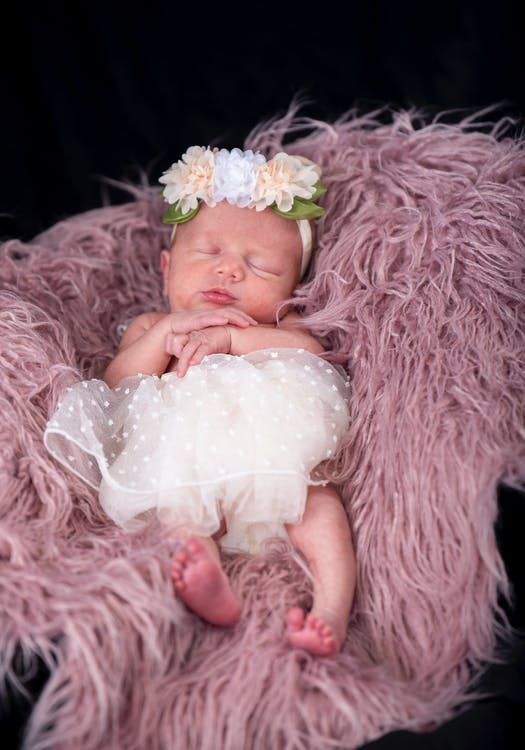
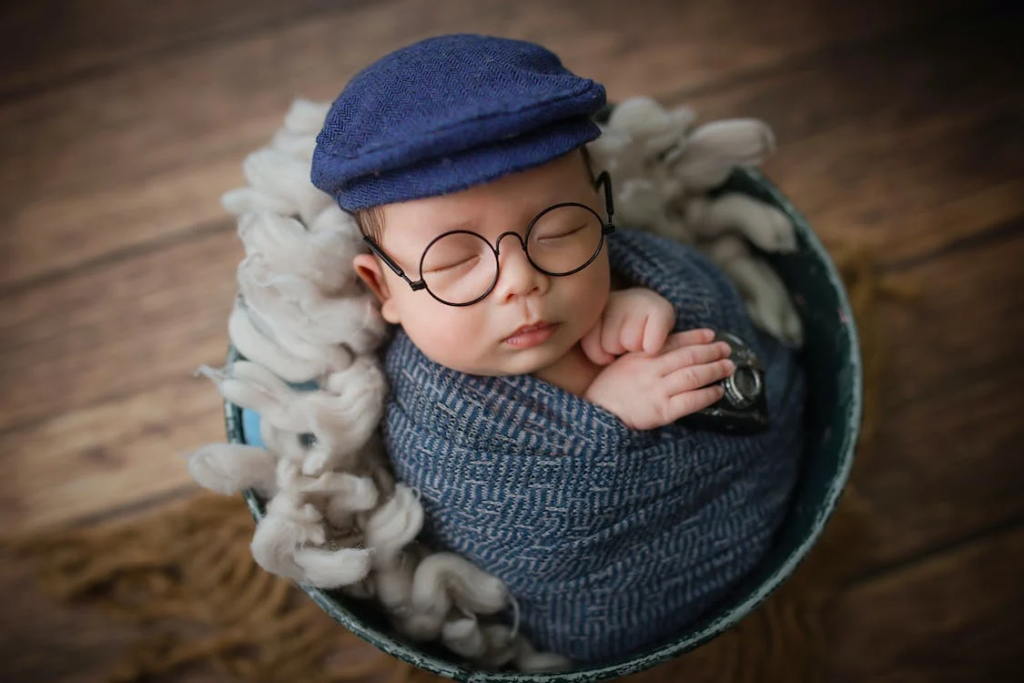
Cozy Baskets
One of the most versatile props that can adapt to different poses and compositions is a cozy basket. Hence, they are more accessible and suitable for novice photographers who have stepped into newborn photography. However, it is vital to check if the baskets are spacious enough to accommodate the baby and are sturdy. While you photograph, place the basket on the floor and cover it with a blanket to ensure the baby’s comfort. In this case, you can shoot straight down.
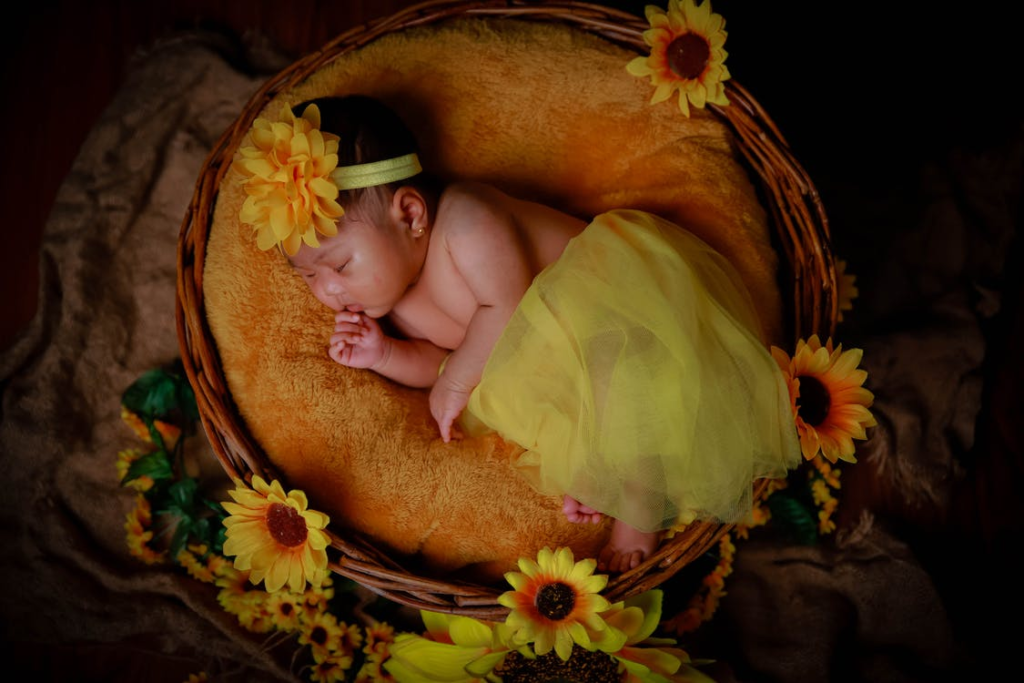
Wooden Crates
Wooden crates add a vintage look to your newborn photography. Hence you can pick up sturdy, vintage wooden crates low to the ground. The babies can be placed inside these crates over a blanket to avoid potential splinters on the wood. Additionally, ensure the box lacks lead paint that can harm the baby.
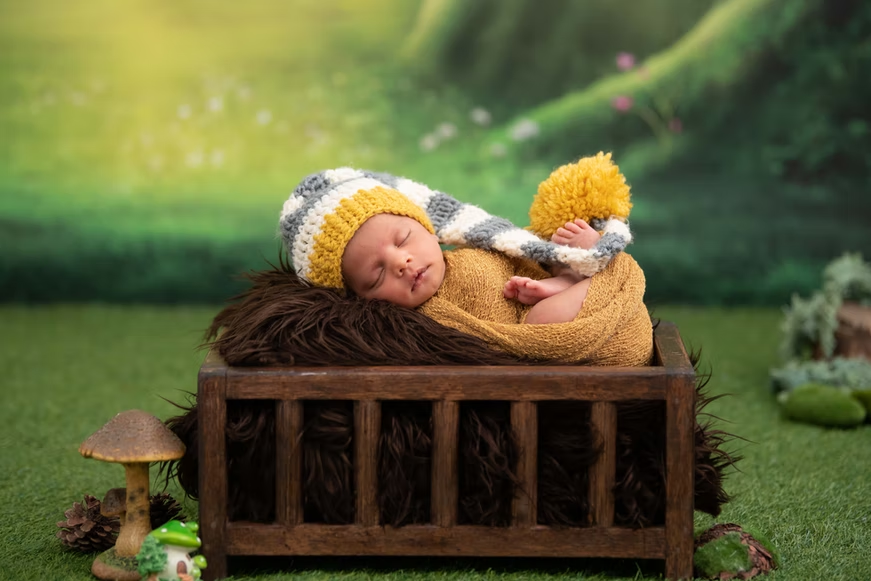
Mom’s or Dad’s Hands
Including the baby’s parents’ hands are a great way to show the parental bond. A close-up that showcases the baby and the parents’ hands alone will throw light on the size and age of the baby.
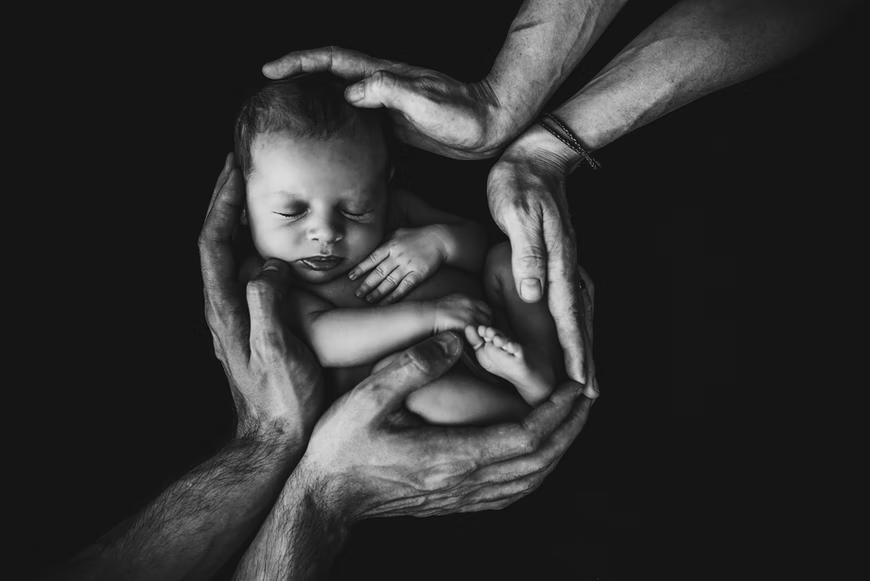
Bean Bag and Blanket
Bean bags are flexible props with which you can dig out a shape or project a part like the head or butt with ease. However, ensure to seek the assistance of their parents and place them nearby to tackle any emergency. You can also cover these bean bags with blankets to make them comfortable for newborns.
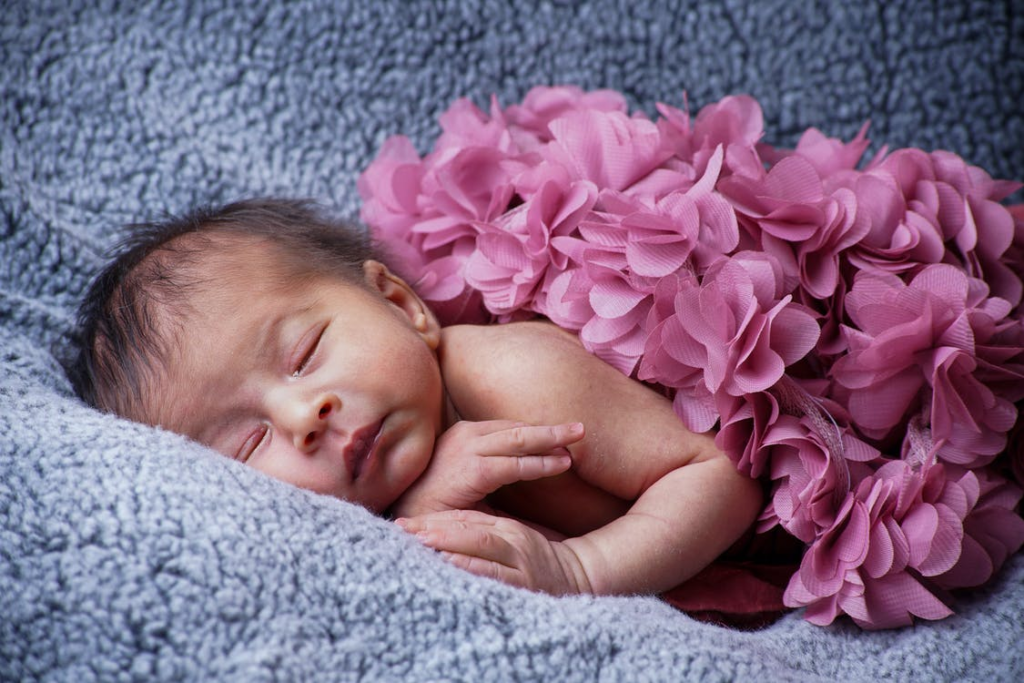
Stuffed Animals
Stuffed animals are great ways to showcase the baby’s size as they grow. In addition, these toys add the fun element when the same baby holds the toy when it is grown up a little more. In short, they showcase how much the baby has grown up.
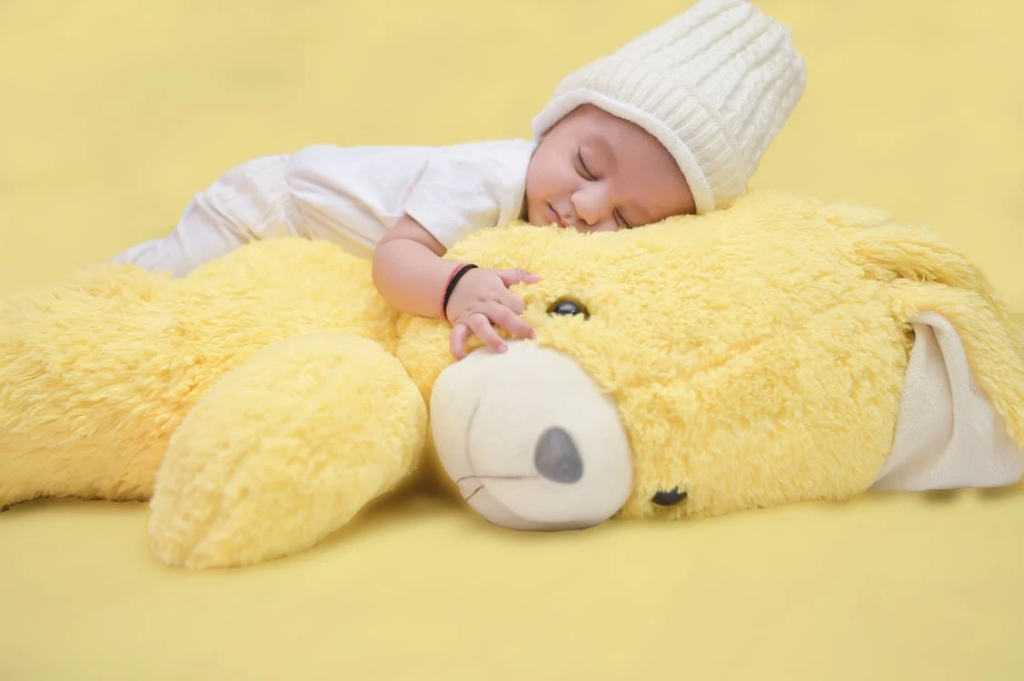
Tutus and Ties
Ties are meant for boys, while tutus indicate femininity. These props add some clothing to the posed newborn. Still, keep them minimal, hiding only their private parts.
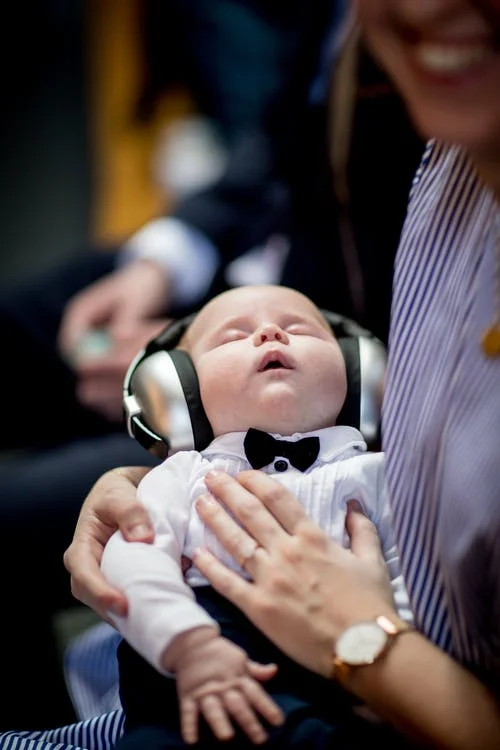
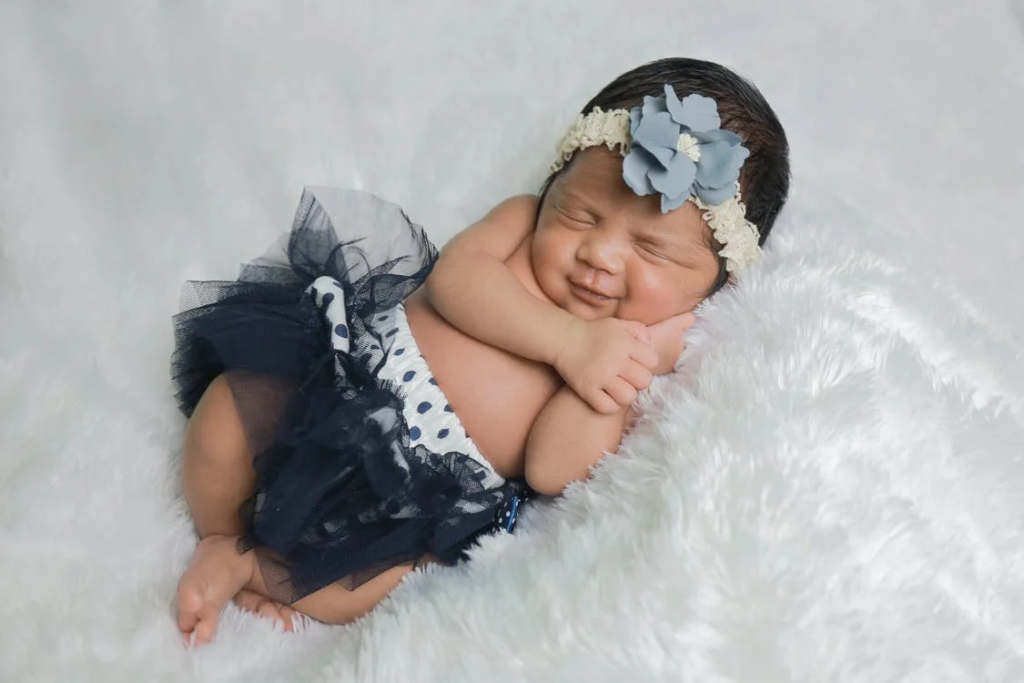
Suitcase
A creative alternative to boxes and crates is vintage suitcases. These props are quite versatile while shooting. You can lay the babies over a closed suitcase or inside an open suitcase. However, they also have to be kept clean, and you have to add a blanket.
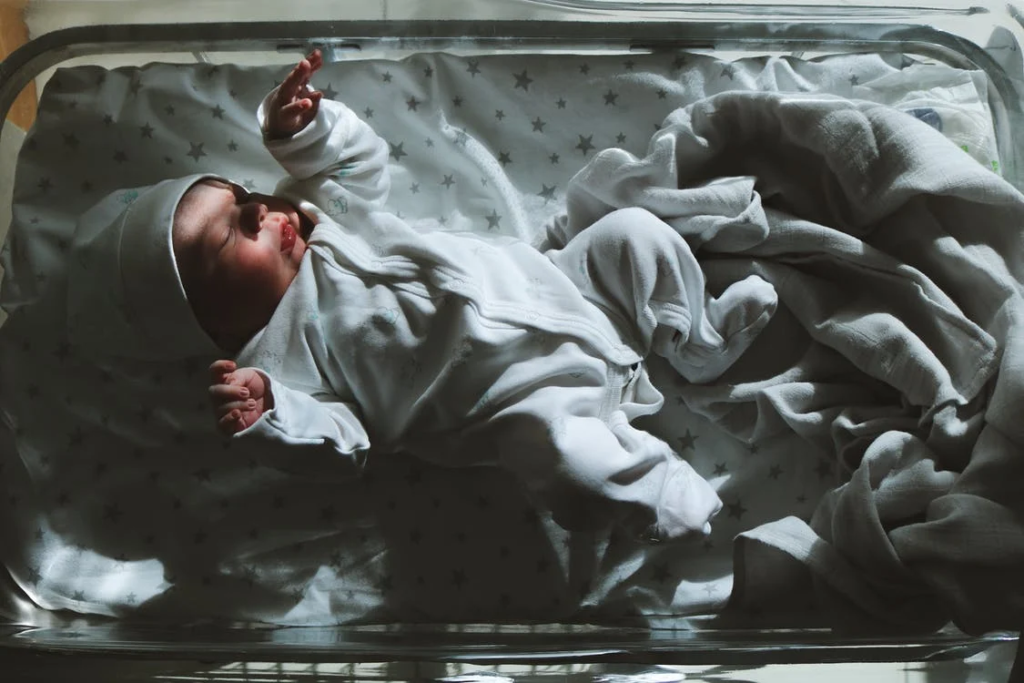
Teepees
Teepees are props that suit older babies or toddlers. These are made of fabric and sticks.
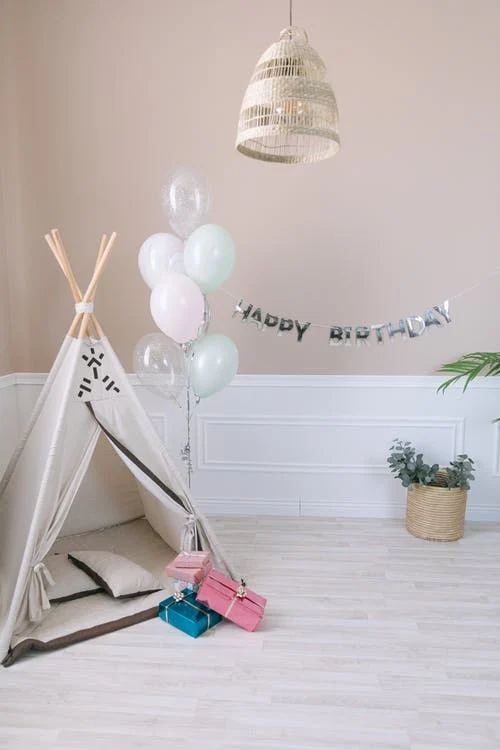
Seasonal Props
According to your baby’s birth month, you can add seasonal props that create a colorful image. For example, you can add seasonal flowers, foliage, and objects that indicate your baby’s birth month.
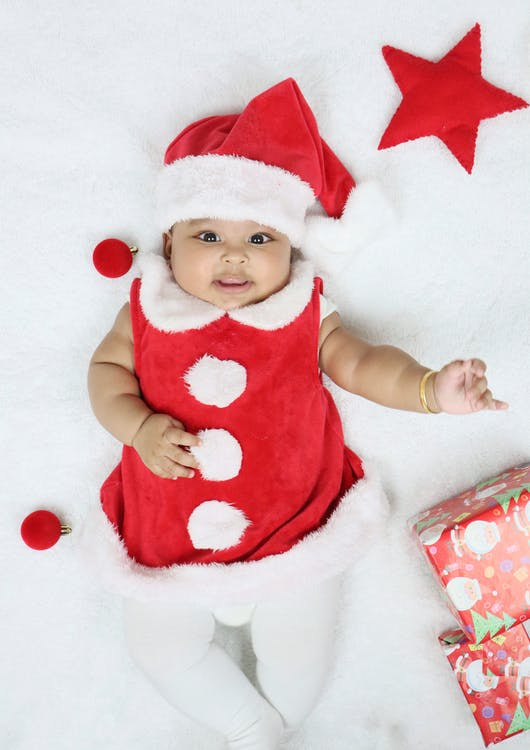
Props Inspired by the Parents
Derive inspiration from the baby’s parents and use it as your prop. For example, a parent who works in the military can lend you his helmet to lay their baby and photograph. This creates a beautiful connection between the newborn and the parent through photography.
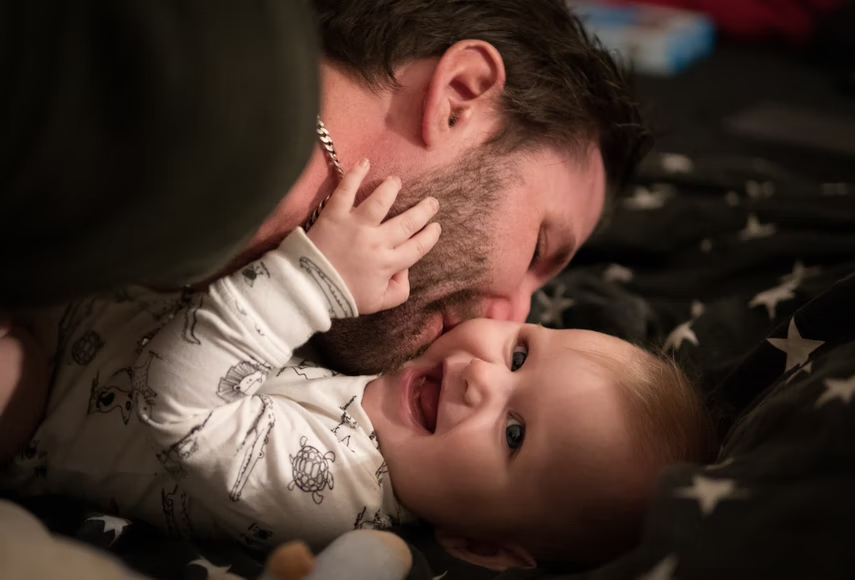
Types of Newborn Photoshoots
The newborn photography can happen either at your client’s place or your studio.
Posed Newborn Photography
Posed newborn photography sessions are generally carried out in a studio or in your client’s home. Baby is the primary element in this type of photography and its image is enriched with poses, props, and styling. This type of shooting highlights the minute details of the baby in a creative way. For this purpose, they use angles and lighting to their advantage. Finally, these photos are edited to even out the skin tones, and red patches and remove dry skin. Additionally, a family photo shoot is carried out.
Lifestyle Newborn Photography
Lifestyle newborn sessions are usually organized in the client’s home and may be available in a studio featuring a lifestyle setup. The primary focus of this type of photography relies on the entire family welcoming the new family member. Hence, this type of shooting highlights the parental happiness that springs from the newborn’s birth. The poses in this kind of photography are pretty natural and candid. When there is no proper natural light, you will have to substitute it with an off-camera flash as not much editing is required.
Tips for Newborn Photography
Communicate with Your Client
It is vital to communicate your expectations to your client. Hence mail them in advance briefing the happenings of the day. You should include the shoot’s duration and keep them posted about the warmth of the place and the layered dressing required. Additionally, request the client to prepare the baby before the shoot. This must include details like keeping the baby awake until the photography session starts and feeding the baby in full just before the session to ensure their newborns sleep through the session. Further, enquire them for any prop preferences, if any.
Plan Your Props
Once you communicate with your client and know their preferences, you can decide on the props. These help you enhance the beauty of your images.
Warm the Working Space
Since the newborn craves warmth and comfort, ensure to warm the working space and maintain a calm environment for cooperation. It is essential to keep the babies warm, primarily when you undress the baby to photograph.
Use Heart Sounds and White Noise
Newborns love white noise and the sounds of the heartbeat. Hence, play these sounds in the background to comfortably photograph them.
Patience is the Key
From handling the baby to swaddling and spending time with them to get the best shot is quite a slow process requiring patience. You must also ensure you don’t startle the baby while handling them.
Use Angles and Lights Properly
A great place to start photographing the newborn will be near the sun. Knowing its current position and estimating its future work will guide you to the correct position. Additionally, ensure the room you photograph is relatively neutral, and it bounces light toward the subject. You can even use a reflector for this purpose.
Derive Inspiration from the Baby
Photography is an art that you can use to depict natural baby poses. Hence, don’t strive for perfection in every frame. Instead, watch out for the baby’s appealing features, such as the big eyes, full lips, etc., that highlight the baby’s beauty. Then, try combining these features with a sweet pose when the baby changes her movements.
Bring in the Mother or a Sibling for a Pose
You can bring in the baby’s mother for a quick shot and let her pose naturally. You can even bring siblings in the photoshoot to capture the newborn baby’s moments.
Videos
DIY Newborn Photography at Home
Newborn baby photography ideas
How to Photograph a Newborn Baby?
Gallery
Conclusion
Although you can try creative poses in newborn photography, give preference to the baby’s safety and comfort. Once you patiently try capturing their images, you can improve as you understand the infant’s behavior.


